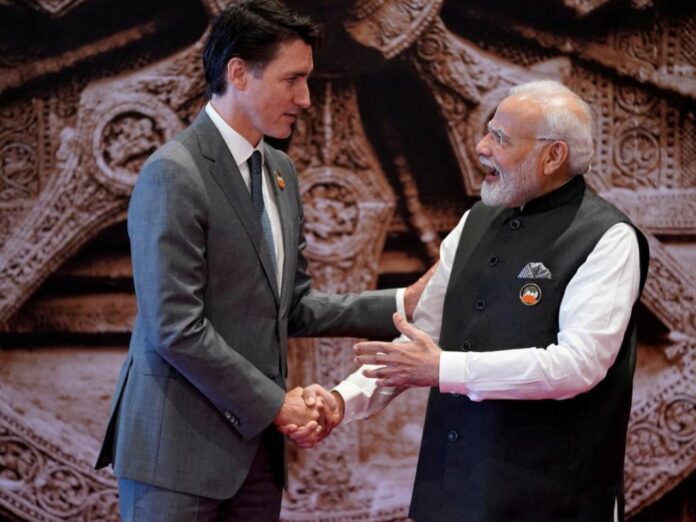India-Canada relations have recently taken a turbulent turn as Canada expelled a high-ranking Indian diplomat amid allegations of Indian government links to the assassination of a Khalistani terrorist, Hardeep Singh Nijjar. This incident has left a significant impact on diplomatic ties between the two nations and raises questions about the future of India-Canada trade relations, given Canada’s substantial investment in India’s economy.
The Allegations and Investigation
The rift between India and Canada stems from the tragic killing of Hardeep Singh Nijjar on June 18, 2023, outside a Sikh cultural center in Surrey, British Columbia. Prime Minister Justin Trudeau stated that his government had received credible allegations suggesting that Indian government entities may have had a role in Nijjar’s assassination. This revelation led to Canada expelling a top Indian diplomat.
Canada’s intelligence agencies initiated an investigation into these allegations, further straining the diplomatic relationship between the two countries. The Indian government, in response, dismissed these accusations as absurd, emphasizing that there is no factual basis for the claims made by the Canadian authorities.
The Impact on Diplomatic Relations
The India-Canada relationship has historically been characterized by cooperation in various domains, including trade, education, and people-to-people ties. However, the recent events have strained this relationship, with both countries exchanging strong statements.
Canadian Prime Minister Justin Trudeau described the murder of an Indian separatist leader on Canadian soil as “extremely serious.” These remarks were met with criticism from India, which emphasized that such allegations should be based on concrete evidence and not speculation.
Trade Implications
One of the critical concerns arising from the deteriorating India-Canada relations is the potential impact on trade and investment. Canada has emerged as a significant contributor to India’s economy, with investments totaling approximately $3.3 billion from April 2000 to March 2023. While this accounts for only about 0.5 percent of India’s total foreign direct investment (FDI) during this period, it is still a substantial sum.
In 2022, India stood as Canada’s ninth-largest trade partner. Sectors such as services and infrastructure played a pivotal role, constituting nearly 41 percent of the total FDI inflow from Canada to India. The escalating tensions could potentially disrupt these economic ties, which have been mutually beneficial for both countries.
The India-Canada relationship finds itself at a challenging juncture, with allegations of Indian government involvement in the assassination of Hardeep Singh Nijjar being at the center of the dispute. While Canada’s actions have sparked a diplomatic row, it remains essential for both nations to engage in a constructive dialogue to address these allegations and find a resolution. The outcome of this conflict will not only impact diplomatic relations but also have far-reaching consequences for trade and investment ties between India and Canada, affecting both countries’ economies and their global standing. Ultimately, resolving this issue in a fair and transparent manner is crucial for restoring trust and cooperation between these two nations.


